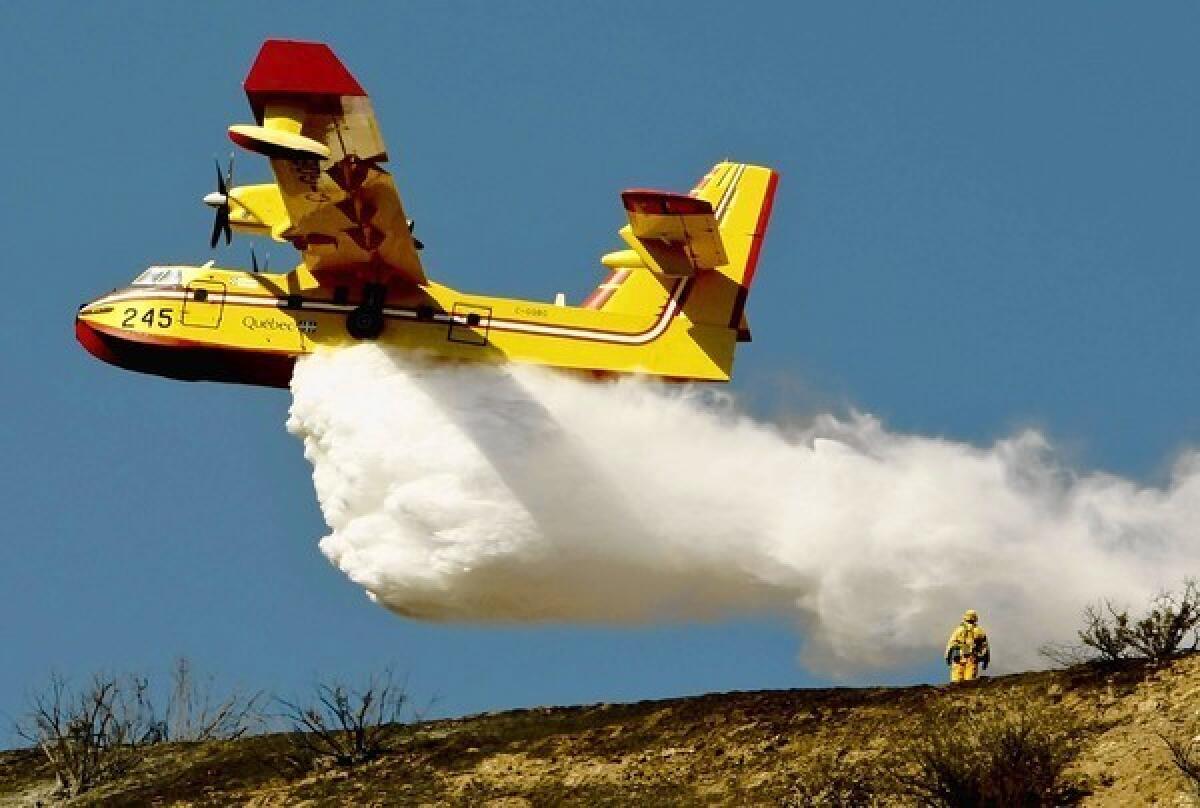U.S. Forest Service rejects firefighting aircraft study

The U.S. Forest Service is dismissing a study it commissioned that recommends a major overhaul in its approach to fighting wildfires, suggesting swapping out expensive retardant-dropping air tankers in favor of less costly water-scooping planes.
A Rand Corp. study examined the optimal combination of large planes and helicopters deployed to fires, providing an analysis of the effectiveness and efficiency of each type of aircraft. The Forest Service relies heavily on an aging fleet of WWII-era tankers to fight fires, which drop thousands of gallons of fire retardant that slows the spread of fires and allows crews on the ground to build containment lines.
The so-called Super Scoopers are large-bellied planes that swoop onto large bodies of water — lakes or even the ocean — and take in up to 1,600 gallons of water. Their utility in fires is two-pronged: The planes fly faster than helicopters and can make more round trips per day, and they are apt to be closer to a water source than tankers, which require an airport and established tanker base for replenishing.
-- Julie Cart, Los Angeles Times